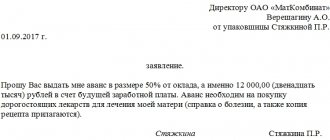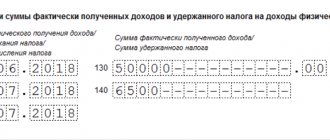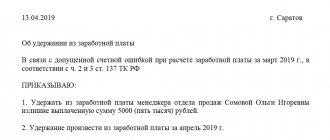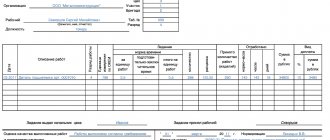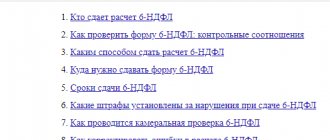Advance for an employee: is it necessary to pay?
The concept of an advance as such does not exist in Labor Law. This name is accepted in everyday life, which means half of the earnings received in the first half of the month worked.
The rules of the standard provided for in paragraph 6 of Art. 136 of the Labor Code of the Russian Federation, employers were obliged to pay wages to staff twice a month at least. The timing of advance payments is determined by the company’s internal local regulations, in which the period for settlements with personnel must be at least 15 calendar days after the end of the period in which salaries are accrued.
Important! If local acts establish a different procedure for settlements with personnel, then they have no legal force.
So, the Labor Code has established a procedure for paying advances at least every half month, which is worked by the company’s employees. The Ministry of Labor of the Russian Federation speaks about this in its commentary No. 14-1/OOG-8532 dated September 23, 2016, and also requires observing the maximum reasonable period of time between the first and second half of earnings. It also follows from this norm that the timing of settlements for the first half of earnings must be clearly specified. For example, on the 15th of the current period, and not from the 15th to the 25th of the month.
What is the procedure for calculating advance payments for staff?
The earnings due for the first half of the month (advance) are paid in any way provided by the company:
- Cash from the cash register (based on payroll);
- By bank transfer to the employee’s bank account (based on the payment register).
Labor legislation does not establish a special method for calculating the advance, in contrast to the timing of its payment. But some regulations of the Ministry of Labor (dated 09/08/2006 No. 1557-6, dated 02/03/2016 No. 14-1/10/B-660) specifically indicate that the amount of the advance should be equated to the actual amount of earnings for the period of time worked. Therefore, the calculation must be based on the information recorded in the staff time sheet. This is also indicated by the comments of the Ministry of Health and Social Development in its information letter dated February 25, 2009 No. 22-2-709.
In some cases, the company’s internal regulations establish a fixed advance amount of 30-40% of the salary, a fixed ruble amount . In both cases, using these methods, there is a risk of overpayment of earnings if the employee is absent (vacation, business trip, days of temporary disability, absenteeism).
Responsibility of an employer who does not pay an advance
The procedure for calculating and paying an advance (as well as full earnings) should not be violated. Otherwise, the company cannot avoid penalties. Often, employees themselves insist on paying their earnings in one lump sum. This position is extremely dangerous. The norms of the Labor Code of the Russian Federation clearly define the number of payments per month: at least two. This means that all employees are given uniform rules for receiving the first and second half of their earnings for the period worked.
Violation of this rule is fined and the employer and the official responsible for such an operation suffer. The following sanctions apply to employers:
- 30,000 to 50,000 rubles (for a primary violation);
- 50,000 to 100,000 rubles (in case of repeated violation).
In relation to official representatives of the company (chief accountant or general director) it is established:
- 10,000 to 20,000 rubles (for the first time);
- 20,000 to 30,000 rubles (repeat);
- Or disqualification (removal from professional duties) from 1 to 3 years.
There are also financial penalties for employers who pay advances late. Based on Art. 236 of the Labor Code of the Russian Federation, the amount of compensation is paid to personnel for delayed wages from the day that occurs after the established deadline for payment of wages.
Personal income tax from salary advance 2021: restrictions
For tax on income in kind or material benefits, no more than 50% of the payment can be withheld (clause 4 of Article 226 of the Tax Code of the Russian Federation). There is no special rule for personal income tax, which the company was unable to withhold from other income. Limits need to be looked at in other laws.
For wages and other payments for labor, there is a limit of 20% (Article 138 of the Labor Code of the Russian Federation). Employees may also receive rent money, cash gifts, or anniversary bonuses from the company. From such income, the company has the right to withhold all personal income tax, which it previously calculated from wages but did not withhold. Limits on withholding do not apply (letter of the Federal Tax Service of Russia dated October 26, 2016 No. BS-4-11/ [email protected] ).
Consider 50 or 20% of the income from which you withhold tax. The income from which you were unable to withhold personal income tax is not important. In this case, first withhold tax from your salary, and determine a 50% limit on the remainder.
Example
On May 29, the company forgave the director a debt of 250,000 rubles. and calculated personal income tax - 32,500 rubles. (RUB 250,000 × 13%). On May 30, she calculated personal income tax on the gift to the best sales manager - 8,580 rubles. ((RUB 70,000 – RUB 4,000) × 13%). On June 5, the company issued wages to employees.
Forgiveness loan. Director's salary - 50,000 rubles, personal income tax - 6,500 rubles. (RUB 50,000 × 13%). From the salary minus personal income tax, only 20% can be withheld as tax on the forgiven loan - 8,700 rubles. ((RUB 50,000 – RUB 6,500) × 20%). The difference is 23,800 rubles. (32,500 – 8,700) must be withheld from the following income. Including advance payment for June.
Present. Manager's salary - 30,000 rubles, personal income tax - 3,900 rubles. (RUB 30,000 × 13%). On account of personal income tax on a gift, the company has the right to withhold half of the salary minus tax - 13,050 rubles. ((RUB 30,000 – RUB 3,900) × 50%). This means that the company can immediately retain all 8,580 rubles.
Personal income tax and advances: method of deduction and payment period
When paying income to individuals, the tax agent (in this case the employer) is obliged to withhold personal income tax and transfer it to the budget. The fact of receiving income when calculating earnings should be based on the norms of paragraph 2 of Art. 223 of the Tax Code of the Russian Federation, where the last day of the month is recognized as income in terms of wages. This means that the company withholds personal income tax and pays it only after paying the second part of the earnings , i.e. in the end of the month.
The deadline for transferring the tax depends on the conditions stipulated by the company’s regulations for remuneration, but without violating the rules established by clause 6 of Art. 226 NK. Namely:
- The day of receiving money from the bank to pay wages is no later than the day of receipt;
- The day of settlement (payment) to staff bank cards is no later than the day of settlement;
- Payments for wages in kind - no later than the day when personal income tax was withheld in cash settlements with the employee.
Difficulties may arise if an employee received an advance and went on vacation without saving wages in the second half of the month. Withholding personal income tax from the advance means violating the norms of clause 6 of Art. 226 NK. In such a case, the company can do the following:
- pay the due funds minus tax;
- at the end of the month, reflect the withheld personal income tax on account 68 (sub-account for personal income tax calculations);
- pay into the budget when paying wages to all company employees.
In this case, you will not have to dispute fines with the Federal Tax Service and pay penalties for being late when paying taxes.
Non-standard situations
The advance is paid on the last day of the month
An exception to the above rules is the situation when the advance is issued on the last day of the month, and the salary is issued in the middle of the next month. For example, an advance payment for May is paid on May 31, and a salary for May is paid on June 15. In this case, the date of actual receipt of income and the date of payment of the advance coincide. This means that already when issuing an advance, you can create a personal income tax base, calculate the amount of tax and transfer the money to the budget.
If, under such circumstances, the employer transfers tax when paying wages and not an advance, inspectors have the right to fine him on the basis of Article 123 of the Tax Code of the Russian Federation. This conclusion was made in the ruling of the Supreme Court of the Russian Federation dated May 11, 2016 No. 309-KG16-1804 (see “The court explained when to transfer personal income tax if the advance is paid to employees on the last day of the month”).
Thus, an employer who issues an advance on the last day of the month is obliged to pay personal income tax on the advance no later than the next day. Then, when the second part of the salary is paid, the organization or individual entrepreneur will transfer the remaining tax for the month worked.
Let us add that the described schedule for payment of advance payments and salaries is very inconvenient from a practical point of view. The fact is that HR officers often close the time sheet and transfer it to the accounting department not on the last day of the month, but after one or two days. And before receiving the report card, accountants cannot determine the amount of income, taxable base and tax. To prevent violations, employers need to either change the salary payment schedule or ensure “early” closure and transfer of timesheets.
Salary is paid in three installments
It happens that employers pay wages not two, but three times a month. As a rule, this happens due to the fact that at the time of payment of the second part of the salary, the company or individual entrepreneur does not have enough funds to fully pay the staff. A debt remains, which the employer repays as soon as possible.
The Federal Tax Service commented on this situation in a letter dated March 24, 2016 No. BS-4-11/4999. According to officials, when faced with it, an accountant should act as follows. If the advance is paid before the end of the month, then there is no need to transfer personal income tax when issuing it. But for each payment made after the end of the month, income tax must be paid (see “The Federal Tax Service announced when personal income tax should be transferred if the monthly salary is paid in three installments”).
Let's explain with an example. Let’s say the advance payment for May was issued on May 25, and the salary for May was issued on June 10 and June 15. Then the accountant must first calculate the total amount of personal income tax for May. Then (if paid on June 10) determine what share of the total amount of the “May” personal income tax falls on the amount of the advance and the first part of the salary. The resulting value is the tax that must be withheld on June 10 and transferred to the budget no later than June 11. The remaining share of the total amount of the “May” personal income tax must be withheld on June 15 and transferred to the budget no later than June 16.
A bonus for labor achievements is issued along with an advance payment
Another exception to the general rules, according to officials, is the situation when, along with the advance payment, the employer pays a bonus for production achievements. The Russian Ministry of Finance is convinced that personal income tax on bonuses must be withheld at the time of their actual payment. And even if the bonus is issued before the end of the month, the tax must be withheld and transferred to the budget no later than the next day.
Financial department specialists explain their position as follows. The general algorithm for withholding and transferring personal income tax from advance payments and salaries applies only to income in the form of wages. But the bonus for labor success is not remuneration, but an incentive payment. Therefore, the date of actual receipt of income for a bonus is not the last day of the month, but the day of payment (subclause 1, clause 1, article 223 of the Tax Code of the Russian Federation). As a result, the taxable base must be formed and the tax withheld at the moment when the bonus is issued to the employee. This point of view was expressed by the Russian Ministry of Finance in a letter dated November 12, 2007 No. 03-04-06-01/383 and confirmed in a letter dated March 27, 2015 No. 03-04-07/17028 (see “Ministry of Finance: Personal income tax on bonuses must be withheld the day of its payment").
However, the judges have a different opinion. In arbitration practice, there are examples where an employer managed to defend its right to transfer personal income tax from a bonus when paying a salary, not an advance. The court recognized: a bonus for production achievements is an element of remuneration, since it was received within the framework of labor relations. If so, then the date of actual receipt of income for the bonus is the last day of the month. Before this date, there is no need to accrue and withhold personal income tax (resolution of the North-Western District Court of December 23, 2014 No. A56-74147/201; “The court resolved the dispute about the date of payment of personal income tax on bonuses for production results”). However, if a company or individual entrepreneur seeks to avoid disagreements with inspectors and possible litigation, it is easier to withhold and pay personal income tax when issuing a bonus.
Reflection of the advance in form 6-NDFL
In the new form of the 6-NDFL report, reflection of the advance payment is not provided for by the filling rules. Earnings at the end of the month are indicated in section 2 of the form, indicating the date of payment of income to staff. All calculations are entered into the report as a total amount. The personal income tax payment deadline in the report must comply with tax legislation.
If income was paid to employees only in the first part of the month (as an advance), then the amount of payment is recognized as income in terms of wages on the last day of the month for which the calculation is made. The amount of personal income tax, which is calculated from income, but is not withheld because Tax is not withheld from the advance payment; you will need to deduct it from the employee’s next salary payment.
In such a situation, settlements with personnel are reflected in Form 6-NDFL as follows:
- an advance that is recognized as wage income is reflected in the total amount of income received;
- tax withholding date – taking into account the actual personal income tax withheld.
Important! When checking the report, tax officials may recognize untimely withholding of income tax.
An explanatory note to the report on Form 6-NDFL will help protect the company from quibbles and fiscal sanctions from tax authorities. It should indicate the reason for such a discrepancy in the timing of income payment and tax withholding.
How is tax withheld and paid in non-standard situations?
In the labor segment, such non-standard situations include, in particular, dismissal in the middle of the current month. This means that the tax should actually be calculated from the advance payment. In this case, a fixed 13% is deducted from the amount issued, after which the rest is given to the staff unit at its disposal. Consequently, there is no mandatory obligation for the employer to withhold the required tax from the full salary. Exceptions may be provided.
Advance on the last day of the month
This form is also allowed, but only if the rest of the salary was issued no earlier than 15 days ago. This has already been noted - organizations can independently set the terms for crediting salaries, but only if the permissible period between transactions is observed. This rule does not apply to employees working on a rotational basis.
Salaries are paid 3 times a month
The main requirement in provision 136 is the step-by-step procedure for the payment of wages. Here the emphasis is on the definition - “at least 2 times a month”, but nothing is said about the maximum values. Therefore, this form may well be used by a conditional organization. In practice, weekly accrual schemes are also used, which is also not considered a violation.
The award is issued along with an advance payment
The organization independently makes its decision on bonuses. Accordingly, such a preference in relation to a staff unit can be implemented at any time, regardless of the time of receipt of the advance or the main part. The premium may well be paid separately from these transactions, and the tax on it will also be calculated separately.
Common Questions
Question 1: The HR service of the employing company has fixed the terms for payment of the advance payment amount and the final payment of wages in the collective agreement. Should changes be made to the document when indicating the timing of payment of bonuses and allowances?
To record calculations for employees' wages in clause 6 of Art. 136 of the Labor Code of the Russian Federation clearly states the conditions for earnings/advance payments and the dates of their payment. With regard to increasing/stimulating payments, the following should be noted. The source of the bonus is usually the company's profit. Its assessment requires some time, which deviates from the deadlines fixed in Art. 136 TK.
Having assessed the financial results that form the basis for calculating bonuses and other incentive accruals, payments are made separately. The rules for such accruals are specified in Part 2 of Art. 135 of the Labor Code of the Russian Federation, which contains requirements that indicate that bonus (incentive) accruals for successful labor results are fixed in:
- local acts of the company;
- collective agreement;
- wage regulations.
These documents should provide for the timing and frequency of payment of these accruals.
